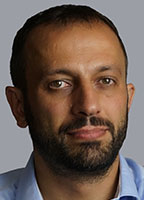
Sarah E. Millar, PhD, is Director of the Black Family Stem Cell Institute, and Lillian and Henry M. Stratton Professorial Chair in the Departments of Cell, Developmental, and Regenerative Biology, and Dermatology at the Icahn School of Medicine at Mount Sinai. Understanding the molecular and cellular mechanisms regulating the development, patterning, and postnatal renewal of the skin and ectodermal appendage organs such as hair follicles, teeth, and taste papillae, and identifying stem and progenitor cell populations in these organs, is critical for developing new therapies to accelerate wound healing, treat hair loss diseases, repair or replace diseased teeth, and ameliorate taste dysfunction. Research in the Millar Laboratory focuses on cell-cell signaling and epigenetic mechanisms that underlie these processes. In published research, researchers identified Wnt/beta-catenin signaling as a key pathway required for initiating the formation of ectodermal appendages from multipotent cells in mammalian embryos, and in controlling development and patterning of haired versus hairy skin. By analyzing genetic mouse models and tissues from human patients carrying mutations in the WNT10A gene, we showed that Wnt signaling plays a key role in regulating the functions of a wide variety of adult epithelial stem cells, as well as in controlling specialized differentiation programs in palmoplantar skin. We have also identified critical functions for epigenetic regulators including micro-RNAs and chromatin modifiers in skin development and regeneration.
Ongoing research interests include:
- Investigating mechanisms that cause ectodermal dysplasia in patients with mutations in the WNT10A gene, and testing potential therapeutic strategies
- Determining the mechanisms that underlie the formation and maintenance of hairy versus hairless skin and regulate hair patterning
- Delineating the functions of histone deacetylase chromatin modifiers in skin development, stem cells, and cancer
- Identifying pioneer transcription factors that control development and stem cell activity in skin and oral epithelia
Lab
Profile









